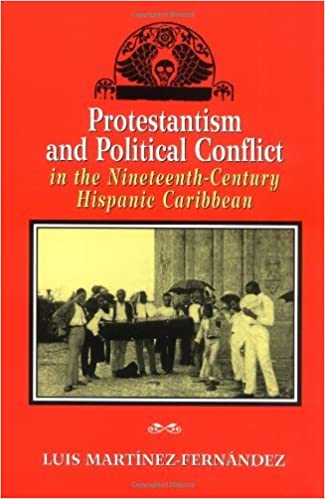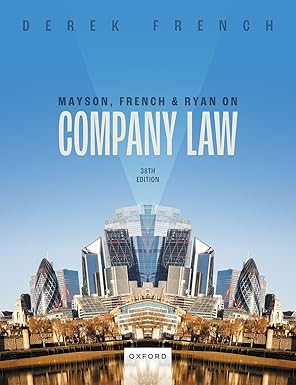Catholicism has long been recognized as one of the major forces shaping the Hispanic Caribbean (Cuba, Puerto Rico, and the Dominican Republic) during the nineteenth century, but the role of Protestantism has not been fully explored. Protestantism and Political Conflict in the Nineteenth-Century Hispanic Caribbean traces the emergence of Protestantism in Cuba and Puerto Rico during a crucial period of national consolidation involving both social and political struggle. Using a comparative framework, Martínez-Fernández looks at the ways in which Protestantism, though officially “illegal” for most of the century, established itself, competed with Catholicism, and took differing paths in Cuba and Puerto Rico.
One of the book’s main goals is to trace the links between religion and politics, particularly with regard to early Protestant activities. Protestants encountered a complex social, economic, and political landscape both in Cuba and in Puerto Rico and soon found that their very presence, coupled with their demands for freedom of worship and burial rights, involved them in a series of interrelated struggles in which the Catholic Church was embroiled along with the other main forces of the period—the peasantry, the agrarian bourgeoisie, the mercantile bourgeoisie, and the colonial state. While the established Catholic Church increasingly identified with the conservative, pro-slavery, and colonialist causes, newly arrived Protestants tended to be nationalistic and to pursue particular economic activities—such as cigar exportation in Cuba and the sugar industry in Puerto Rico. The author argues that the early Protestant communities reflected the socio-cultural milieus from which they emerged and were profoundly shaped by the economic activities of their congregants. This influence, in turn, shaped not only the congregations’ composition, but also their political and social orientations.
چکیده فارسی
کاتولیک به مدت طولانی به عنوان یکی از نیروهای اصلی شکل دهنده کارائیب اسپانیایی (کوبا، پورتوریکو و جمهوری دومینیکن) در طول قرن نوزدهم شناخته شده است، اما نقش پروتستان به طور کامل بررسی نشده است. پروتستانتیسم و درگیری سیاسی در کارائیب اسپانیایی قرن نوزدهم ظهور پروتستانتیسم را در کوبا و پورتوریکو در طول یک دوره حیاتی از تحکیم ملی که شامل مبارزات اجتماعی و سیاسی میشد، نشان میدهد. مارتینز-فرناندز با استفاده از یک چارچوب مقایسه ای به راه هایی می پردازد که پروتستانتیسم، اگرچه به طور رسمی در بیشتر قرن "غیرقانونی" بود، خود را تثبیت کرد، با کاتولیک رقابت کرد، و مسیرهای متفاوتی را در کوبا و پورتوریکو در پیش گرفت.
یکی از اهداف اصلی کتاب ردیابی پیوندهای بین دین و سیاست، به ویژه با توجه به فعالیت های اولیه پروتستان است. پروتستان ها هم در کوبا و هم در پورتوریکو با یک چشم انداز پیچیده اجتماعی، اقتصادی و سیاسی مواجه شدند و به زودی دریافتند که حضور آنها، همراه با مطالبات آنها برای آزادی عبادت و حقوق دفن، آنها را درگیر یک سری مبارزات مرتبط با یکدیگر می کند که در آن کاتولیک ها کلیسا همراه با دیگر نیروهای اصلی آن دوره - دهقانان، بورژوازی کشاورزی، بورژوازی بازرگانی و دولت استعماری درگیر بود. در حالی که کلیسای کاتولیک تأسیس شده به طور فزاینده ای با اهداف محافظه کار، طرفدار برده داری و استعمار شناسایی می شد، پروتستان های تازه وارد تمایل به ناسیونالیستی داشتند و فعالیت های اقتصادی خاصی را دنبال می کردند - مانند صادرات سیگار در کوبا و صنعت شکر در پورتوریکو. نویسنده استدلال میکند که جوامع اولیه پروتستان بازتابی از محیطهای فرهنگی-اجتماعی بودند که از آن بیرون آمدند و عمیقاً تحت تأثیر فعالیتهای اقتصادی اجتماعهایشان شکل گرفتند. این تأثیر، به نوبه خود، نه تنها ترکیب جماعت، بلکه جهت گیری های سیاسی و اجتماعی آنها را نیز شکل داد.
ادامه ...
بستن ...
ISBN-13: 978-0813529943
ISBN-10: 0813529948
ادامه ...
بستن ...










